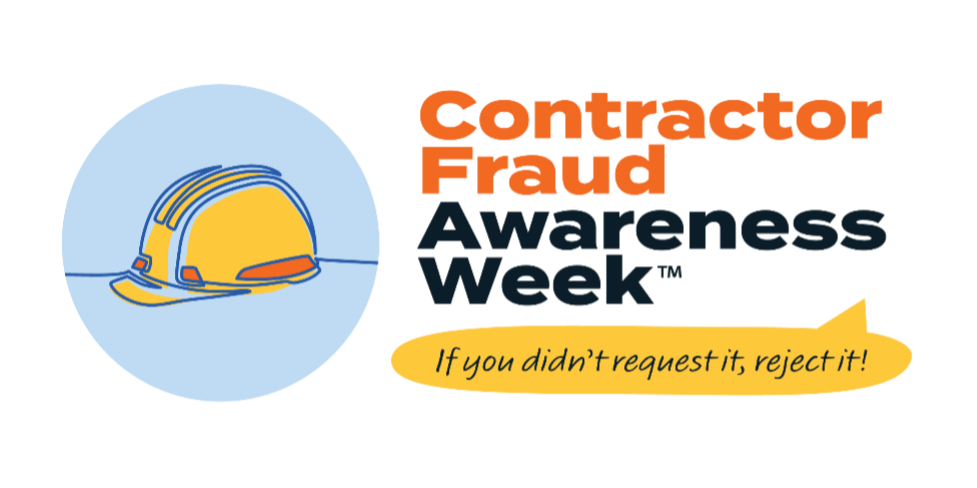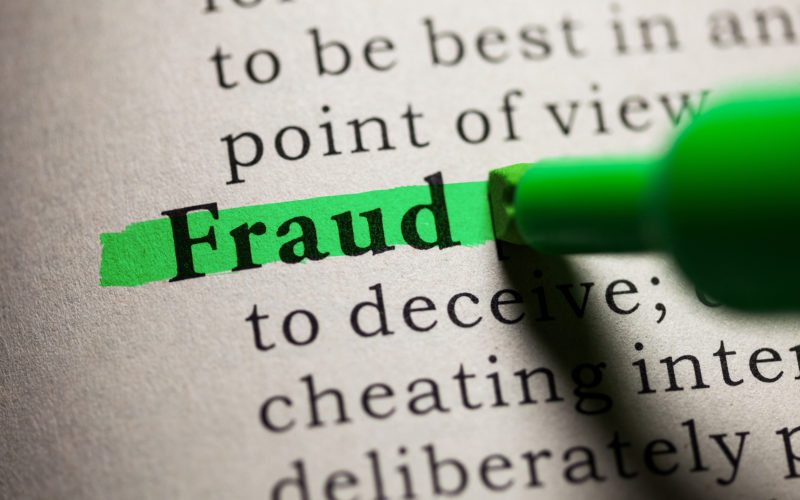Following natural disasters, homeowners are left putting their lives back together. The Rocky Mountain Insurance Association (RMIA) is joining the National Insurance Crime Bureau (NICB) during Contractor Fraud Awareness Week in warning traumatized homeowners to avoid being victimized a second time by deceitful contractors after a natural catastrophe.

Typically, fraudulent disaster repair scams begin with an unsolicited visit from a contractor who seeks to help victims rebuild. After disasters, these swindlers may press homeowners into paying out their insurance claim prior to repairs being completed. However, these bad actors collect payment, and then disappear without completing the work that was promised. Oftentimes they try to earn the business of a homeowner looking to rebuild by stating they are recommended by a governmental organization or specific insurance companies.
“One of the biggest disaster fraud red flags is contractors who go door-to-door pressuring homeowners to sign a contract. With hail and wildfire season in full-swing, it’s important for Coloradans to coordinate with their insurance company and do their homework on contractors BEFORE they commit to any repair work.”
Carole Walker, RMIA Executive Director
Before hiring any contractor, call your insurance company. There is no need to rush into an agreement with a contractor, especially if it was not requested.
“Support from other organizations helps us spread the word about the problems associated with post-disaster fraud. Victims of disasters are under tremendous stress as they are often pulled from their homes, fight heavy traffic attempting to get to safety, all while leaving their home and belongings behind. When they go home, they are exhausted and strained, a time when they are most susceptible to these fraudulent schemes.”
David Glawe, president and CEO of the NICB
The NICB recommends reviewing the following tips before hiring a contractor for services:
- Be wary of anyone knocking on your door offering unsolicited repairs to your home.
- Be suspicious of any contractor who tries to rush you, especially on non-emergency or temporary repairs.
- Do not believe a contractor who says they are supported by the government. The Federal Emergency Management Agency (FEMA) does not endorse individual contractors or loan companies; call FEMA toll-free at 800.621.FEMA for more information.
- Shop around for a contractor by getting recommendations from family, friends, neighbors, or search online.
- Get three written estimates for the work and compare bids. Check credentials with the Better Business Bureau or state attorney general’s office to see if the firm has any outstanding complaints.
- Always have a written, detailed contract that clearly states everything the contractor will do, including prices for labor and materials, clean-up procedures, and estimated start and finish dates.
- Never sign a contract with blank spaces. A crooked contractor could alter after they receive your signature.
- Never pay for work up front. Always inspect the work and make sure you’re satisfied before you pay. Most contractors will require a reasonable down payment on work, but do not pay anything until you have a written contract.
- Avoid paying with cash; use a check or credit card instead. This creates a record of your payments to the contractor.
- Download a copy of the NICB Post-Disaster Contractor Search Checklist which walks victims through the contractor hiring process.
Contractor Fraud Awareness Week runs from July 12th through July 16th.
Report Fraud
Anyone with information concerning insurance fraud or vehicle theft can report it anonymously by calling toll-free 800.TEL.NICB (800.835.6422) or submitting a form on our website.
About the National Insurance Crime Bureau
Headquartered in Des Plaines, Ill., the NICB is the nation’s leading not-for-profit organization exclusively dedicated to combatting and preventing insurance crime through Intelligence, Analytics, and Operations; Education and Crime Prevention; and Strategy, Policy, and Advocacy. The NICB is supported by more than 1,200 property and casualty insurance companies and self-insured organizations. NICB member companies wrote over $530 billion in insurance premiums in 2020, or more than 82% of the nation’s property-casualty insurance. That includes more than 95% ($236 billion) of the nation’s personal auto insurance. To learn more, visit www.nicb.org.
About RMIA
Rocky Mountain Insurance Association is a non-profit consumer information organization that represents property & casualty insurers in Colorado, New Mexico, Utah and Wyoming. RMIA has been serving consumers and the media since 1952.
Rocky Mountain Insurance Association | 10940 S. Parker Rd Ste 456 Parker, CO 80134| 303-790-0216 | rmiia@rmiia.org | www.rmiia.org

